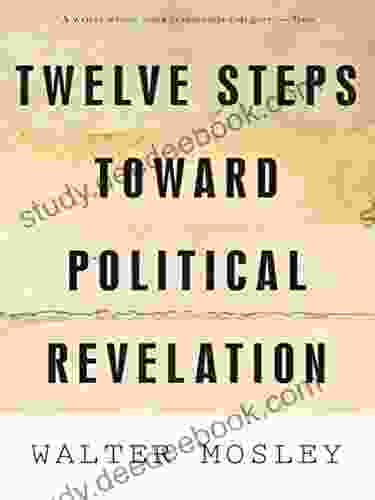Theoretical Perspectives And Practical Processes: A Comprehensive Guide

Theoretical perspectives and practical processes are two essential components of any field of study or practice. Theories provide a framework for understanding the world and how it works, while practical processes provide the tools and methods for putting those theories into action. In this article, we will explore the relationship between theoretical perspectives and practical processes, examining their key concepts, advantages, disadvantages, and applications.
Theoretical Perspectives
A theoretical perspective is a set of assumptions and beliefs about the world that guide how we think about and understand it. Theories can be used to explain how things work, why they happen, and what their implications are. There are many different theoretical perspectives, each with its own unique strengths and weaknesses.
5 out of 5
| Language | : | English |
| File size | : | 1530 KB |
| Text-to-Speech | : | Enabled |
| Screen Reader | : | Supported |
| Enhanced typesetting | : | Enabled |
| Word Wise | : | Enabled |
| Print length | : | 279 pages |
Some of the most common theoretical perspectives in social work, psychology, and education include:
- Systems theory: This perspective views individuals as part of a larger system, such as a family, school, or community. It emphasizes the importance of understanding the interactions between individuals and their environment.
- Cognitive-behavioral theory: This perspective focuses on the role of thoughts and behaviors in mental health and well-being. It emphasizes the importance of changing negative thought patterns and behaviors in order to improve mental health.
- Humanistic theory: This perspective emphasizes the importance of the individual's subjective experience and personal growth. It focuses on helping individuals to achieve their full potential and live meaningful lives.
Practical Processes
Practical processes are the tools and methods that we use to put our theories into action. These processes can be used to assess needs, develop interventions, and evaluate outcomes. Some of the most common practical processes in social work, psychology, and education include:
- Assessment: This process involves gathering information about an individual or group in order to identify their needs and strengths. Assessments can be used to develop treatment plans, provide feedback, and track progress.
- Intervention: This process involves providing services or support to individuals or groups in order to help them achieve their goals. Interventions can be used to address a wide range of issues, such as mental health problems, substance abuse, and poverty.
- Evaluation: This process involves assessing the effectiveness of an intervention or program. Evaluations can be used to measure the impact of an intervention, identify areas for improvement, and make decisions about future funding.
The Relationship Between Theoretical Perspectives And Practical Processes
Theoretical perspectives and practical processes are two sides of the same coin. Theories provide the foundation for practical processes, and practical processes provide the evidence to support or refute theories. The best theories are those that are both grounded in research and effective in practice. The best practical processes are those that are based on sound theory and that can be used to achieve desired outcomes.
The relationship between theoretical perspectives and practical processes is a dynamic one. As new theories are developed, they can lead to the development of new practical processes. As new practical processes are developed, they can provide evidence to support or refute existing theories. This ongoing process of theory development and practical application is essential for the advancement of any field of study or practice.
Advantages Of Using Theoretical Perspectives
There are many advantages to using theoretical perspectives in social work, psychology, and education. Some of the most important advantages include:
- Provides a framework for understanding the world: Theories provide a way to make sense of the complex world around us. They help us to identify the key factors that influence human behavior and development.
- Guides practice: Theories provide a guide for how to assess needs, develop interventions, and evaluate outcomes. They help us to make informed decisions about how to best help our clients.
- Promotes critical thinking: Theories encourage us to think critically about the world around us. They help us to identify our own assumptions and biases, and they challenge us to consider alternative perspectives.
Disadvantages Of Using Theoretical Perspectives
There are also some disadvantages to using theoretical perspectives in social work, psychology, and education. Some of the most important disadvantages include:
- Can be limiting: Theories can sometimes be limiting. They may not be able to account for all of the complexities of human behavior and development.
- Can be difficult to apply: Theories can sometimes be difficult to apply in practice. They may require specialized knowledge and skills that not all practitioners have.
- Can be biased: Theories can sometimes be biased. They may reflect the values and beliefs of the person who developed them, and they may not be applicable to all people or cultures.
Theoretical perspectives and practical processes are two essential components of any field of study or practice. Theories provide a framework for understanding the world and how it works, while practical processes provide the tools and methods for putting those theories into action. By understanding the relationship between theoretical perspectives and practical processes, we can be more effective in our work and better meet the needs of our clients.
5 out of 5
| Language | : | English |
| File size | : | 1530 KB |
| Text-to-Speech | : | Enabled |
| Screen Reader | : | Supported |
| Enhanced typesetting | : | Enabled |
| Word Wise | : | Enabled |
| Print length | : | 279 pages |
Do you want to contribute by writing guest posts on this blog?
Please contact us and send us a resume of previous articles that you have written.
 Book
Book Page
Page Text
Text Genre
Genre E-book
E-book Magazine
Magazine Paragraph
Paragraph Sentence
Sentence Glossary
Glossary Bibliography
Bibliography Preface
Preface Synopsis
Synopsis Annotation
Annotation Footnote
Footnote Scroll
Scroll Codex
Codex Tome
Tome Bestseller
Bestseller Library card
Library card Biography
Biography Encyclopedia
Encyclopedia Dictionary
Dictionary Thesaurus
Thesaurus Character
Character Resolution
Resolution Borrowing
Borrowing Archives
Archives Periodicals
Periodicals Study
Study Research
Research Scholarly
Scholarly Reserve
Reserve Academic
Academic Journals
Journals Interlibrary
Interlibrary Literacy
Literacy Study Group
Study Group Storytelling
Storytelling Reading List
Reading List Textbooks
Textbooks Laurel Solorzano
Laurel Solorzano Paul Gorman
Paul Gorman Tamara Draut
Tamara Draut Carole Massey
Carole Massey Stephen Calt
Stephen Calt Lei Guo
Lei Guo Karen Bojar
Karen Bojar Vinod Khosla
Vinod Khosla Jerry Rannow
Jerry Rannow Toby Neighbors
Toby Neighbors Nancy Marie Mithlo
Nancy Marie Mithlo David Charles Meissner
David Charles Meissner Seth Greenland
Seth Greenland David Lee Corley
David Lee Corley Tara Sivec
Tara Sivec Rob Chapman
Rob Chapman Jeff Shesol
Jeff Shesol Katy R Kudela
Katy R Kudela George Lipsitz
George Lipsitz Dede Feldman
Dede Feldman
Light bulbAdvertise smarter! Our strategic ad space ensures maximum exposure. Reserve your spot today!

 Edison MitchellMemories from the Elementary School Classroom: A Collection of Stories from...
Edison MitchellMemories from the Elementary School Classroom: A Collection of Stories from...
 Hamilton BellThe Library of Analytical Psychology: Unveiling the Depth and Significance of...
Hamilton BellThe Library of Analytical Psychology: Unveiling the Depth and Significance of... John KeatsFollow ·7.6k
John KeatsFollow ·7.6k Shawn ReedFollow ·12.9k
Shawn ReedFollow ·12.9k Ken FollettFollow ·14.8k
Ken FollettFollow ·14.8k John GreenFollow ·4.1k
John GreenFollow ·4.1k Dave SimmonsFollow ·12.7k
Dave SimmonsFollow ·12.7k Morris CarterFollow ·8.5k
Morris CarterFollow ·8.5k Kazuo IshiguroFollow ·9k
Kazuo IshiguroFollow ·9k Leon FosterFollow ·9.6k
Leon FosterFollow ·9.6k

 Dominic Simmons
Dominic SimmonsIcky Island: An Unforgettable Adventure for Kids!
Introducing Icky Island: A Delightful One...

 Carlos Fuentes
Carlos FuentesThe Midnight Breed: Embracing the Shadows and Unlocking a...
Welcome to the captivating world of...

 Ike Bell
Ike BellTwelve Steps Toward Political Revelation: A Path to...
Politics, often perceived as a complex and...

 Cameron Reed
Cameron ReedTravels in Arizona Goldfield: Unraveling the Threads of...
Nestled amidst the rugged...

 John Grisham
John GrishamFlashpoints of Cinema History and Queer Politics:...
The relationship between cinema history and...
5 out of 5
| Language | : | English |
| File size | : | 1530 KB |
| Text-to-Speech | : | Enabled |
| Screen Reader | : | Supported |
| Enhanced typesetting | : | Enabled |
| Word Wise | : | Enabled |
| Print length | : | 279 pages |










